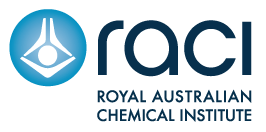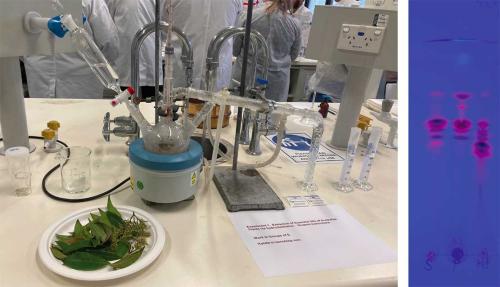For several years, the RACI (Vic) Chemistry Education Committee has run very successful professional learning days for Victorian chemistry teachers that are based on a unique ‘formula’.
First, they are designed and run by the committee working in close collaboration with staff from a host university. Originally, they were hosted by Monash University. Since 2019, however, they have been hosted by RMIT University. This year, we were very honoured to work with Professor Sylvia Urban and Associate Professor Lathe Jones of the School of Science, RMIT University. Lathe is also the treasurer of our committee; the other committee members are all very experienced, dedicated chemistry teachers from different schools.
Second, our days feature hands-on experiments in the university laboratories. These experiments are designed and trialled by the committee members and academic staff, who work on them at their schools and at the host university over many months. Not only are our participants provided with a booklet of the experiments and teacher guides (printed in full colour), but after the day they are also sent copyright-free digital copies in Microsoft Word so they can adapt them for their schools.
We believe that practical investigations are integral to the study of chemistry and one of the main means by which students can be fascinated and excited about chemistry. For this reason, one of our key aims for the day is to inspire and enable the teachers to give their students the opportunity to undertake worthwhile, meaningful, hands-on laboratory investigations that not only meet the requirements of the latest Study Design, but also build up and extend students’ science investigation and thinking skills and their understanding of the concepts involved.
Third, our days are based on a theme that is relevant to the Victorian Study Design, in an area for which teachers would benefit from extending their professional knowledge. This is often around a new area in a newly revised Study Design. This year, our theme was around the extraction, purification, separation, testing and instrumental analysis of key components of Australian native plants, particularly antioxidants and oils.
The aim of this is to reinvigorate chemistry teaching by extending the teachers’ knowledge of current research and practical applications in areas covered within the Study Design, so that they see the content in a wider context and appreciate its relevance and importance, which they can then pass on to their students.
This year, Professor Sylvia Urban of RMIT University gave an excellent, fascinating keynote address on the work her research group is doing on extracting, isolating and analysing useful compounds from Australian plants and marine invertebrates. This topic is now part of the new VCE Chemistry Study Design for both Years 11 and 12.
Fourth, our days feature a workshop with the Curriculum Manager, Science, of the Victorian Curriculum and Assessment Authority, Maria James. In these sessions, teachers can discuss various queries that they may have with regard to delivering the Study Design and meeting its school assessment requirements.
Fifth, we ensure that we provide a variety of excellent food for breakfast, morning tea and lunch, as well as tea and coffee all day. Many of our teachers travel from distant regional areas from very early hours in the morning. All the teachers really appreciate such good catering, which also takes into account all their various dietary requirements (which we ask about on their applications). These are times when the teachers can network.
Finally, at the end of the day, teachers are provided with attendance certificates signed by RACI that they can give to the Victorian Institute of Teaching to prove they have participated in seven hours of formal professional learning. (Teachers are required to participate in a number of hours of professional learning to maintain their teacher registration.)
We are committed to providing our professional learning at the lowest possible cost so that teachers at schools that are classified as disadvantaged can also attend. For this reason, each of us gives our time at no charge. And we are most grateful to the School of Science at RMIT University for sponsoring our event, including offering their facilities at no charge. This year, participants were only charged $100.
How successful was our 2023 event?
The RMIT laboratories were able to cater for 48 participants. We not only filled them but also had a waiting list, which showed we were meeting a real need.
Feedback was very positive, as the quotes above show.
Advice for groups wishing to run similar events
As far as we know, no other chemistry education groups or other organisations that run professional development events for chemistry teachers offer such a complete program. The usual model involves lectures and discussions but does not offer the experience of trying out new experiments that match the Study Design or curriculum, or providing copyright-free digital copies of the experiments afterwards, or very generous catering, all at an accessible price.
We believe that the following also helped make a difference:
- Our personal touch before, during and after the event. This included sending participants individual welcome emails before the event that also told them what they would be provided with, what they needed to bring, how to find us (with a photo), transport information etc.
- Our tight, well-organised program
- Our collaboration and teamwork in delivering the program
- The outstanding contributions of Sylvia Urban and Lathe Jones in planning and running the day
- The central location of the venue – the City Campus of RMIT University
We encourage other providers to consider our very different and very beneficial model – it is a lighthouse approach that others are welcome to follow. We are very happy to provide further information to other chemistry education groups should they wish to run a similar event.
For copies of our program and the three experiments we ran this year, and information about our past years, contact jennysharwood@aussiebroadband.com.au.




